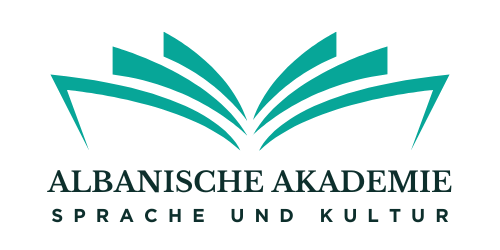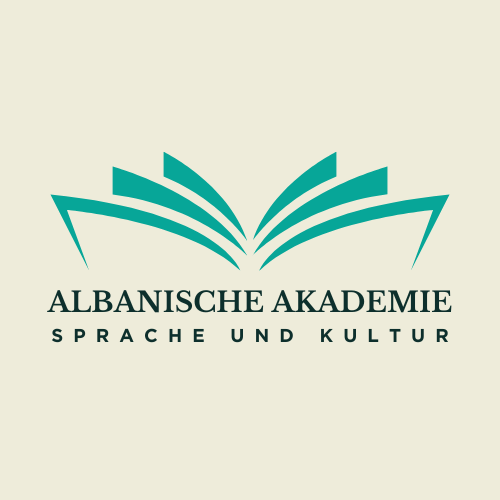About Course
Course Description
This C2-level course includes 80 academic hours, divided into 24 thematic lessons and 8 revision units. It is designed for learners who already possess a high command of the Albanian language and wish to achieve clarity, nuance, and linguistic flexibility across all contexts – academic, professional, and cultural.
Reading & Comprehension – advanced literary, scientific, and social texts
Speaking – argumentation, critical discussion, personal expression, and spontaneous interaction
Writing – essays, analyses, formal letters, cultural commentary, and structured reflections
Grammar Knowledge – advanced usage of noun phrases, nominalization, phraseology, and conjunctions
Duration: 80 academic hours
Format: Online or in-person in Berlin
Group size: 4–6 participants for an advanced and personalized experience
What You Will Learn:
- Understand and interpret complex texts in various styles
- Express deep, nuanced, and clearly structured ideas in speaking and writing
- Engage in academic, ethical, and cultural discussions with fluency
- Use rich vocabulary, stylistic flexibility, and advanced grammar accurately
Materials included
- Books and references
- Videos
- 10+ articles and texts
- Assignments
- Certificate of completion
Course Curriculum
Lesson 1 – Albanian Literature
Analysis of texts by Camaj and Poradeci. Discussion on the portrayal of Albanians in literature (Azem Shkreli). Focus: adjective phrase structures and descriptive phraseology.
Lesson 2 – Renewable Energy
Texts on clean sources like solar, hydro, and geothermal energy. Writing about renewable alternatives. Focus: noun phrase order and terminology.
Lesson 3 – Biodiversity
Texts from local and international sources on biodiversity and climate change. Comments on preservation and species protection. Focus: adverbial phraseology.
Revision Unit 1
Lesson 4 – Antiquity
Readings on ancient Albanian cities and civilizations. Discussion on albanophilia and ruins. Focus: compound word spelling and verbal idioms.
Lesson 5 – Legends and Oral Traditions
Stories like “Besa e Kostandinit” and “Princess Argjiro.” Writing about mythological figures and cultural parallels. Focus: masculine plural forms and idioms with “ice.”
Lesson 6 – Flora and Fauna in Albania
Information on rare plants and animals, such as the Albanian tulip. Writing a conservation project. Focus: feminine plural forms and idioms with “end.”
Revision Unit 2
Lesson 7 – Medicinal Plants
Texts about the benefits of chamomile, aloe vera, and walnut. Focus: modifier agreement and idioms with “nut.”
Lesson 8 – Special Needs
Texts on disability rights and inclusive education. Reflective writing. Focus: use of articles and idioms with “mud.”
Lesson 9 – Feeling Betrayed
Betrayal in society and media, and its causes. Focus: tense coordination and idioms with “face.”
Revision Unit 3
Lesson 10 – Laughter Extends Life
Types and functions of humor. Emotional and social effects. Focus: infinitive verb forms and idioms with “grass.”
Lesson 11 – Organ Donation
Discussions on transplants, 3D printing, and religion. Real-life stories and essays. Focus: coordinating conjunctions and idioms with “belly.”
Lesson 12 – Genetic Heritage
Readings on cloning and genetic modification. Writing for and against scientific advancements. Focus: subordinating conjunctions and idioms with “tail.”
Revision Unit 4
Lesson 13 – Life on Other Planets
Readings on Mars and alien life. Focus: nominalization (I) and idioms with “eye.”
Lesson 14 – The Passion for Gaming
Gaming addiction, its impact on families, and social reflection. Focus: nominalization (II) and idioms with “lip.”
Lesson 15 – The Microscopic World Within Us
Bacteria, hygiene, vaccines, and antibiotics. Focus: punctuation and idioms with “drum.”
Revision Unit 5
Lesson 16 – Illnesses of the Century
AIDS, loneliness, and elderly care. Focus: elliptical sentence structures and idioms with “foot.”
Lesson 17 – The Intelligent Human
Quotes by Einstein and stories about geniuses. Focus: paragraph structure and idioms with “heart.”
Lesson 18 – Cultural Heritage
Discussion on iso-polyphony and cultural emotions. Media texts and lexical variants.
Revision Unit 6
Lesson 19 – Art and Cultural Objects in Albania
Texts on “Guva e Lepenicës” and artists like Idromeno and Kodra. Focus: synonymic phraseology.
Lesson 20 – Albanians Under Dictatorship
Excerpts from Visar Zhiti and Pjetër Arbnori. Reflections on totalitarian life. Focus: antonymic phraseology.
Lesson 21 – Legislation in Albania
Readings on parliament history and Kanun. Writing legal texts and guides. Focus: dual-structure idioms.
Revision Unit 7
Lesson 22 – Language and Migration
Linguistic challenges for immigrant children. Essays and tips on language preservation. Focus: three-part idioms.
Lesson 23 – War and Peace
Report-style texts on war and peace. Reflections on art and conflict. Focus: idioms with more than three elements.
Lesson 24 – Albanian Public Figures
Speeches and analyses of figures like Ismail Kadare. Writing biographies and summarizing key works. Focus: field-specific terminology and sentence-structured idioms.
Revision Unit 8
This course includes:
- Lectures 24
- Duration 80 Hours
- Skill Level Proficient / Mastery
- Certificate of Participation Yes
Related Courses

Albanian A1 – Starter Level
Start Your Journey in Albanian!- Learn the basics: greetings, numbers, and simple sentences.
- Build confidence in everyday conversations.
- Perfect for travelers, beginners, and expats in Albania or Kosovo.

Albanian A2 – Elementary Level
Start Your Journey in Albanian!- Consolidate learned vocabulary and grammar structures
- Practice integrated exercises across the four language skills
- Reflect on their progress and receive personalized feedback

Albanian B1 – Intermediate Level
Expand Your Communication Skills!- Understand narrative and informative texts in Albanian
- Take part in conversations on a range of topics
- Write personal thoughts and stories with clarity and appropriate structure

Albanian B2 – Upper-Intermediate Level
Expand Your Communication Skills!- Understand complex narrative, informative, and argumentative texts
- Write essays, letters, and well-structured texts with clarity
- Participate in discussions on profound social, cultural, and personal topics

Albanian C1 – Advanced Level
Become an Expert in Albanian!- Understand and analyze long, complex texts
- Express themselves with precision, rich style, and natural command of language
- Participate fluently in academic and public discussions

Albanian C2 – Proficiency Level
Become an Expert in Albanian!- Understand and interpret complex texts in various styles
- Engage in academic, ethical, and cultural discussions with fluency
- Express deep, nuanced, and clearly structured ideas in speaking and writing



